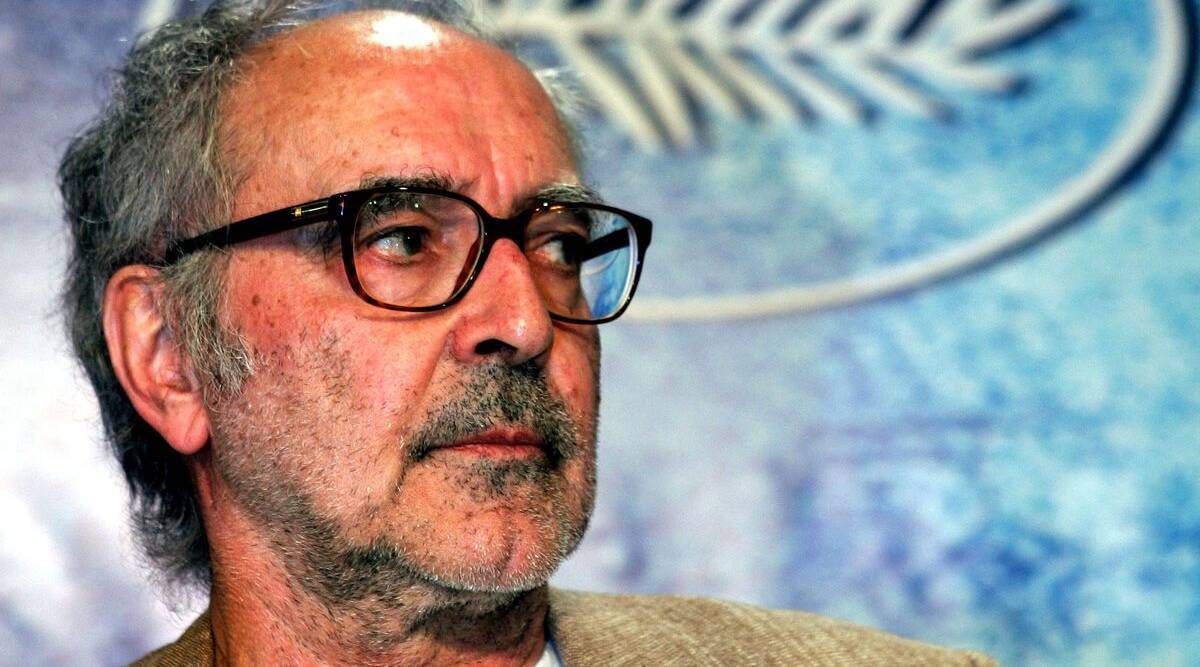Jean-Luc Godard was the conscience of cinema

With the departure of Jean-Luc Godard, the historical past of cinema, in lots of senses, involves an finish. For him, each historical past and cinema had been central — the 2 poles between which his life, thought and works oscillated. He was a filmmaker who noticed, felt and thought his approach by way of cinema, to expertise and perceive the world. For him, cinema was the image-history of the world, and so, in a method or one other, all his movies had been about cinema itself. Politics was central to it. So was the concept of revolt, resistance and riot. In all his works, one can see a younger, stressed, irreverent insurgent at work, pondering in and thru pictures, to not solely make sense of the world, but in addition to form it as a type of reminiscence and a mode of motion. An obsessive and pressing need to have interaction with the world — to picture, think about, incite and remodel — pulsate by way of his movies.
From celluloid to video and digital, his journey was lengthy and eventful. All through his profession, he was prolific and within the thick of each radical politics and revolutionary aesthetics. Although he seldom travelled, his movies continuously and obsessively journeyed internationally, incisively critiquing the imperialist/colonial legacies of the West and holding palms with voices and pictures that revolted in opposition to it. Even when many of the filmmakers of his era moved positions and “settled” into predictable codecs and themes, Godard continued to experiment with cinematic type and likewise continued with the deeply political questions on energy and picture, aesthetics and politics that he began with.
For Godard, cinema was a form of encyclopaedia of the world or a laboratory of life, the place every part converged, got here into battle, and took a particular political form. So, he freely drew from all types of mental and aesthetic assets — from literature, philosophy, portray, information and archival footage. The inveterate Eisensteinian in him pieced all of them collectively to make cinema converse to historical past, and vice versa. For him, cinema itself was uncooked materials and medium to make movies.
There has by no means been a filmmaker who was so obsessively self-reflexive, each about himself and his medium. That is how Jacques Ranciere describes his 266-minute lengthy Histoire(s) du Cinema (1998) that makes use of pictures and clips from tons of of movies to make cinema reclaim and reassert its historicity: “Godard takes the movies these filmmakers made and makes with them the movies they didn’t make…(by way of) a set of operations that singularly complicate our notions of picture and historical past, operations that in the end invert the thesis that cinema betrayed itself and its century and display, as a substitute, the unconventional innocence of the artwork of transferring pictures.” It was this deeply radical activity of partaking with cinema’s tryst with historical past that engaged Godard’s movie philosophy and made him a real movie historian of cinema. For Godard, picture was reality and the mission of cinema was to testify to its presence and the current.
In a protracted and productive profession, we see Godard initially because the incisive movie critic of Cahiers du Cinema, then turning into the iconoclast filmmaker of the New Wave era, as a Maoist within the Dziga Vertov group, and within the final a long time, as one of the vital self-reflexive chroniclers of cinema and his occasions. No different filmmaker on the earth has reinvented himself aesthetically and relentlessly adopted radical politics with ardour. Therefore, he was all the time thought-about a “filmmakers’ filmmaker”.
That is how Serge Dany, one of many most interesting movie critics of the final century, describes him (‘The Godard Paradox’): “He is not only an ideal filmmaker… he excels at being the filmmaker who expects every part from cinema, together with ‘that cinema ought to free him from cinema’… He foils our calculations and disappoints those that worship him too readily; Godard has all the time stored transferring, in each sense of the phrase, inside a film-world that’s nonetheless large enough to can help you transfer about and to point out your stressed power. He’s a thinker, a scientist, a preacher, an educator, a journalist, however all this as an newbie; he’s the final (to this point) to have been the (coherent) witness and the (ethical) conscience of what’s afoot in cinema.” Godard was the conscience of cinema and its consciousness.
Lastly, when one appears to be like at Godard from India, how does he determine in our understanding of the world, experiencing of movie aesthetics, and the understanding of radical cinema? A European to the core, the one Asian picture that seems in his epic historical past of cinema is from an Ozu movie. However the questions he raises with regard to the medium of cinema, its aesthetics and politics are common. For example, whereas chiding Indian new wave makes an attempt, Satyajit Ray appears to be like up at Godard as an unconventional, revolutionary and unorthodox filmmaker who’s “the primary director within the historical past of the cinema to have completely disbursed with what is named the plot line. Certainly, it might be proper to say that Godard has devised a completely new style for the cinema… It’s a collage of story, tract, newsreel, reportage, quotations, allusions, business quick, and straight TV interview — all associated to a personality or a set of characters firmly positioned in a exact up to date milieu. A cinema of the top and never of the center, and due to this fact, a cinema of the minority”. Ray additionally says that with Godard “the reversal of conference is just not a gimmick or an affectation, however a constructive and significant extension of the movie language” that “calls for craftsmanship of the very best order, not to mention varied different gear on an mental airplane.”
Godard, whose dedication to the reality of the picture was whole and who thought-about filmmaking a sworn statement of historical past, has a whole lot of pressing and essential classes to supply in an age of digital extra and distraction. Seekers of image-truth and truth-image will proceed to return to his works, each to grasp the primary century of cinema as a witness to historical past and to hunt methods and means to picture the following.
The author is a movie critic and documentary filmmaker




